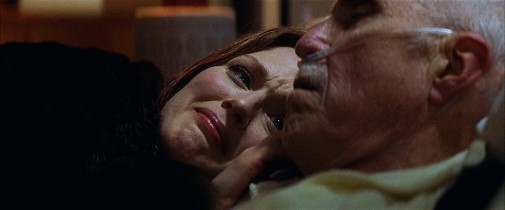
Though the year is still relatively young, Julianne Moore has already staked her claim on 2023. She stars in two early releases, Jesse Eisenberg's When You Finish Saving the World and Benjamin Caron's Sharper and has some juicy upcoming projects lined up. For instance, Todd Haynes' May December has already wrapped filming and is in post-production, maybe headed towards a festival release later in the year. With all this in mind, it felt like a good time to shine the Almost There spotlight on the 2014 Best Actress champion. And so, let's think back to the afterglow of Moore's first brush with Hollywood's most coveted trophy.
In 1997, she was nominated for Boogie Nights, grasping mainstream acclaim. Two years later, Moore was back working with P.T. Anderson on another prestigious project - the Berlinale-winning hyperlink nightmare of Magnolia…
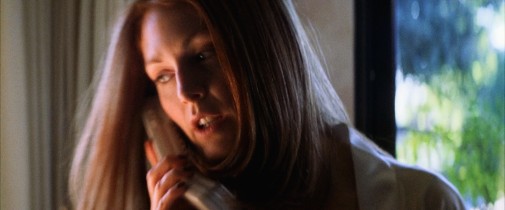
In the tapestry of interconnected stories that make up Magnolia's narrative, Julianne Moore plays Linda, the trophy wife of Earl Partridge, a former bigshot TV producer. As the camera crashes into these people's lives, the viewer quickly learns that her existence is now defined by the shadow of death looming over every waking minute, her husband wasting away from cancer. Their luxurious abode has been retrofitted into something halfway between a hospice and a mausoleum, with nurses cycling through. Today's orderly is Phil Pharma, whose tense posture whenever Linda shows up tells the viewer all they need to know about their dynamic.
Introduced while arguing on the phone, Linda is a wealthy neurotic who probably spends a lot of energy shouting at people like Phil, chewing his ass as an outlet for the pent-up anxiety she carries with her at all times. Between sweeping camera choreography and the fast cutting, Magnolia doesn't give Moore much space to breathe in these first few moments, demanding that the actress telegraph her characterization in quick flashes. She obliges, using broad strokes to paint a portrait of high-strung sharpness that only ever morphs into something softer when she's comforting the dying man or alone with her thoughts.
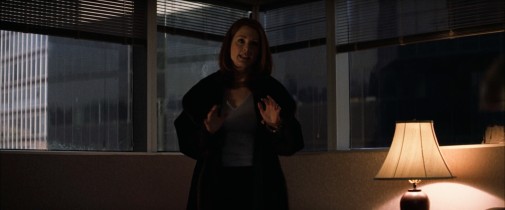
That may be the most terrifying thing, so Linda rarely lets silence encircle her, talking a mile a minute, peppering curses between breaths. Moore's first real scene is between Linda and her husband's doctor, and it further underlines the panicked swiveling between aggressive cacophony and silent terror that forms Linda's screen presence. At first, she vomits a speech about Earl's pain, seemingly lost in the reminiscence of his closing throat, the suffering that won't stop. There's disgust there, but not at the moribund body. Instead, it feels directed at the waning abstraction of death, talks of logistics making the thing awfully palpable.
But is dying so bad? That hypothesis haunts the pair's interaction. Talking herself into accepting that it might be the kindest thing that could happen to Earl, the doctor further concretizes the possibility when he recommends a potent cocktail. Her husband's pain will be gone, and so will he, consciousness lost to the pharmaceuticals as he drifts away from the land of the living. Anderson's camera holds on to Moore's face then, the fast-cutting stopping for a hot second, manic panic settling down to a contemplative mood. Lit by Robert Elswit, the actress has seldom looked more beautiful. She also rarely looked more afraid.
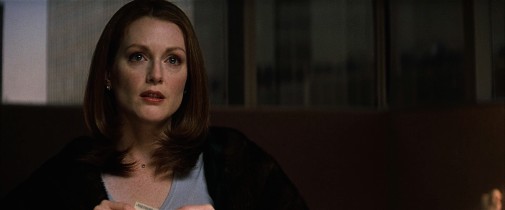
It's easy to be put off by Julianne Moore's performance, so big and loud, so ferocious in its surrender to high melodrama, to soap opera stylings, to sheer hysteria. She overacts throughout, though never without purpose. Tonally, she's always on point. I'd go as far as stating that this is a masterclass in delivering what a film's script and its given form ask for, pushing past the barriers of good taste while doing so and never looking back. If that was evident in those first moments, it becomes impossible to ignore as Magnolia turns the dials up its storylines. Linda's freak-out is taken to a fever-pitch of narcotized guilt, gross shame bubbling from within a pool of self-hatred.
The rain is pouring outside and she's perspiring despair - it's like a film of oil coating her soul. That's the state of Moore's mad housewife as she arrives at her next stop, the shrink, where she picks up a prescription for more medication. And then, it's time for THE scene, a showstopper of a breakdown wherein an actress whose best performances hinge on precision lets herself become a loose cannon personified. It all starts subtly enough, with angry looks dripping with condescension towards the young man suspicious of her little mountain of dangerous drugs.
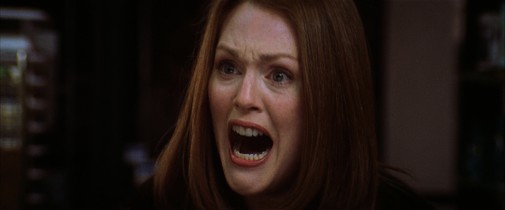
As soon as the guy dares to question her with more than his eyes, she explodes, eye rolls igniting a powder keg of pent-up fury. One can get lost in the levels of unhinged behavior Moore accesses, letting vocal variations become as vertiginous as a face contorted in shouted caricature. Watching her is hypnotic, a psychotic beauty verging on camp while keeping a foot firmly planted on the character's anguish. Sure, Moore's screeched monologues are ready to be made into a spoken-word lip-syncs for your life on Drag Race. However, that doesn't mean this chosen path of maximalism is wrong for the movie.
Decontextualized, you can laugh. In context, it's mesmerizing.
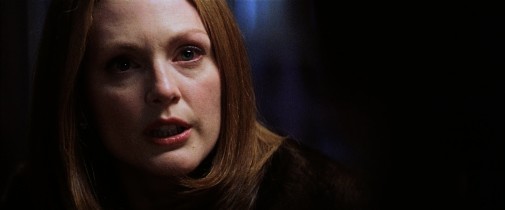
The same goes for her following scenes, as Moore finally lets Linda bare her soul, deciphering the folly she's allowed on-screen with a confession to the family's lawyer. Losing the plot in actorly business, the performance reaches for a level of seriousness in line with the portentous score swelling in the background. Linda married Earl for his money, falling in love with him as time passed. Now, death imminent, she wants to renounce the inheritance while preventing it from falling into the hands of the man's disgraced son. Glassy eyes shining in the shadows, she's a woman possessed.
The trance is broken, once more, by the words of a man looking down on her with suspicion, perchance pity. There's a finesse to the transition, how her gaze suddenly focuses on the scene partner, the haze of drug-addled self-reflection transcended for a cruel second. 'Fuck yous' are spit at the camera, another wrathful scene exit manifests, another attempt at running away from the darkness within. Finally, it leads back to the dying man and a decision that liberates in its promise of destruction. Moore whispers through a scene for the first time and sketches the faintest hint of a smile. In self-annihilation, she shall find peace.
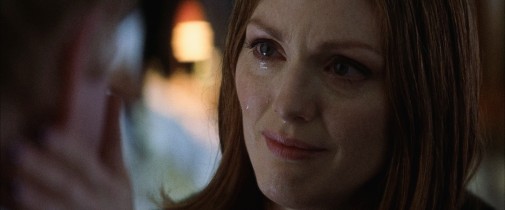
With all the muchness that Julianne Moore indulges in Magnolia, it's easy to forget this moment, the instant of her character's tragic resolution. Regard this glimmer of finality, and you'll see an actress in full control of her character, the screen performer as some stormy deity forcing a hurricane to submit. Our last glimpse of Linda before the frog rain finds her tired from the constant escape, from the screams, from another confrontation, a newfound epiphany. The heightened register fades, catatonic stillness prevails, Aimee Mann playing through a breath of movie magic. Bound in musical unity, the ensemble cast sings along as Linda tries to end it all.
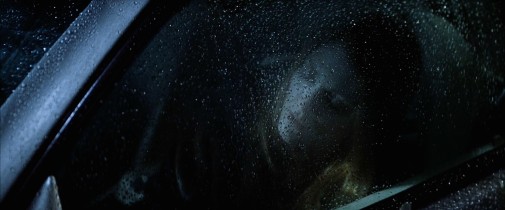
Though Magnolia was nominated for three Academy Awards, Julianne Moore wasn't among the nominees. In the end, Tom Cruise snatched the picture's only acting citation. However, the precursors were kind to the red-headed wonder, with the actress collecting nominations from SAG and the NSFC, plus a win from the NBR. That's more than some of AMPAS' eventual nominees in the Supporting Actress category. They were Toni Collette in The Sixth Sense, Angelina Jolie in Girl, Interrupted, Catherine Keener in Being John Malkovich, Samantha Morton in Sweet and Lowdown, and Chloë Sevigny in Boys Don't Cry. Jolie won that year, while Moore would receive three more nominations and a win for Still Alice.
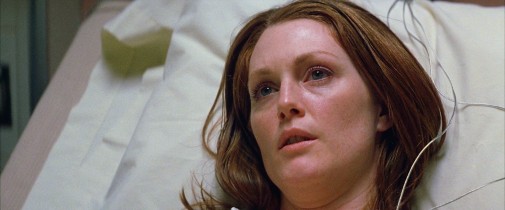
Magnolia is readily available for rent or purchase on most of the bigger platforms.